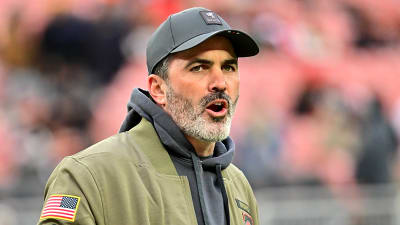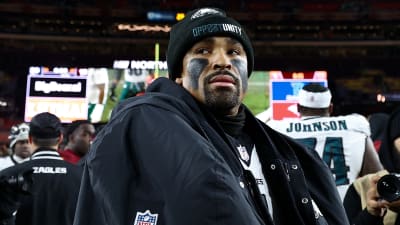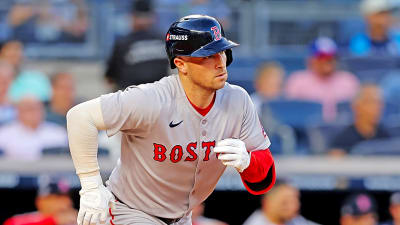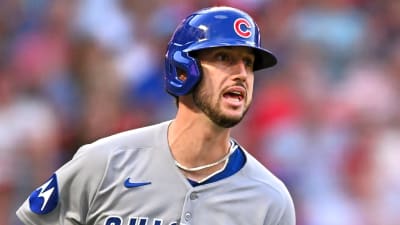
The Royals enter the weekend with the American League’s fourth-best record (23-16) and in possession of the league’s second Wild Card spot. Their starting rotation, as highlighted by MLBTR’s Anthony Franco yesterday, looks exceptional. Their top four relievers, by workload, have ERAs of 2.65 or better.
Pitching was never going to be the question with this Kansas City roster, however — at least as long as they stayed mostly healthy. (So far, so good.) The lineup was a far more glaring question heading into the season. Kansas City traded from its rotation depth in an effort to bolster the lineup over the winter, sending Brady Singer to Cincinnati in return for Jonathan India. The move hasn’t panned out as hoped just yet. India’s .340 on-base percentage is strong, but he’s hitting .237 and slugging .313.
But while India hasn’t been as productive as hoped, he’s hardly the culprit in the Royals’ lackluster offense overall. Rather, that lies primarily in the outfield. Kansas City outfielders have been the second-worst offensive unit in the majors, by measure of wRC+ (72). Their collective .229/.286/.332 batting line is 28% worse than league-average when viewed through that lens.
Drew Waters has provided some offense, but MJ Melendez was optioned to Triple-A after an awful start recently. Center fielder Kyle Isbel is a strong defender but currently has a .253 on-base percentage; he’s walked once in 98 plate appearances. Hunter Renfroe’s already disappointing 2024 production has declined even further, making his signing all the more regrettable for the club.
The Royals’ outfield was woefully unproductive in 2024 as well. Early last May, in a piece for Trade Rumors Front Office subscribers, I explored the team’s near decade-long drought when it comes to developing outfielders. In essence they haven’t drafted/developed or traded for/developed an above-average outfielder since the days of Alex Gordon and Lorenzo Cain. Suffice it to say, a lack of outfield production isn’t new. Since 2019, no team’s outfield has produced a lower wRC+ than Kansas City’s 83 — and that’s including 916 plate appearances of better-than-average production from Andrew Benintendi, who was acquired as an already-established big leaguer. The Royals’ homegrown outfielders have struggled even more.
The hope within the organization is that top prospect Jac Caglianone, last year’s No. 6 overall pick, can end that drought. Caglianone starred as a first baseman at the University of Florida, but with Vinnie Pasquantino set at first base, the Royals have given the former Gator a few looks in right field. He’s made five starts there, all of which have come in the past 15 days.
Caglianone is just 22 and has yet to even play in Triple-A, but his bat has been so prodigious that there are increasing calls to bring him to the majors as soon as possible. One glance at his .328/.404/.586 slash line and eight homers in 136 plate appearances in Double-A makes it easy to understand the reason for that clamor.
Sam McDowell of the Kansas City Star took a look this week at Caglianone’s possible timeline to the majors and spoke to Kansas City GM J.J. Picollo about the possibility of a promotion. Picollo spoke in general terms but was, of course, complimentary of Caglianone and optimistic about his outlook.
“We like what he’s doing. We’re happy with what he’s doing,” said the GM. “We’re trying to allow him to develop properly as a hitter, and when this offense settles in, that might be a proper time for him to come up.”
McDowell points out that Caglianone has still only faced faced a repeat opponent once this year. His second meeting with said team brought a very different approach from their pitchers. He was attacked differently and had some uncomfortable swings. Caglianone’s contact rate on pitches within the strike zone, his overall swinging-strike rate (currently a lofty 14.5%) and his chase rate on balls off the plate are all elements the team is considering.
“…[W]hen you get a strike thrown to you in the major leagues and you don’t do something with it, that’s a missed opportunity,” Picollo added. “You might get that second opportunity in the minor leagues, but you’re not going to in the major leagues.”
While the Royals wait for Caglianone to check the necessary boxes, they’ve at least contemplated alternatives. Ken Rosenthal of The Athletic reports that the Royals considered placing a claim for outfielder Leody Taveras when the Rangers placed him on outright waivers but held off due to the financial commitment it would have required. Taveras is earning $4.75MM in 2025 and had about $3.73MM yet to be paid out at the time he was claimed by the Mariners.
On the one hand, it’s understandable if Royals brass took a look at the .231/.285/.350 line produced by Taveras and decided he wasn’t productive enough to merit a claim. On the other, even that sub-par production would still be an improvement over what the Royals have trotted out dating back to last year (and, really, dating back to 2019).
More concerning is the mention that Taveras’ salary might’ve been too steep and cut too heavily into any potential payroll flexibility they’ll have leading into the 2025 trade deadline. Kansas City’s Opening Day payroll of $126MM is the team’s largest since 2017 and the third-largest in franchise history. Under owner John Sherman, who purchased the club from the late David Glass in Nov. 2019, the Royals have averaged a $103MM payroll during 162-game seasons (i.e. excluding the pandemic-shortened 2020 campaign).
This year’s spending is already way up relative to Sherman’s prior comfort levels. Balking at a readily available upgrade due to a relatively modest salary would seem to suggest there might not be a ton of cash left in the team’s reserves.
That doesn’t mean there won’t be any upgrades available, of course. The Royals presumably have at least a few million in wiggle room, and there will be affordably priced outfielders, relievers and others on the market. They could also pay a slightly higher price in terms of prospects to persuade trade partners to pay down the salary of any veterans sent to Kansas City. Sherman could be heartened by a strong run through mid-July and simply approve a larger budget to further strengthen his club’s World Series hopes. However it plays out, the Royals seem likely to be eyeing outfield upgrades from within (Caglianone) and from outside the organization as well in the months ahead.
The bullpen could conceivably be an area of focus on the summer trade market as well, though right now it looks like a strength. Kansas City has been without setup man Hunter Harvey for more than a month now, however, due to a strained teres major muscle. Recent updates on him from manager Matt Quatraro weren’t overly encouraging. Via Anne Rogers of MLB.com, Harvey threw live batting practice earlier this week but felt some continued discomfort the following day. Quatraro said they’ll accordingly slow down his throwing progression a bit. While the manager cautioned that it’s “nothing alarming,” that also doesn’t bode well for a return in the short term.
Harvey was terrific to start the season, rattling off 5 1/3 scoreless innings with one hit, no walks and seven strikeouts. He looked far more like he did in the first half of 2024 with the Nationals, before back troubles torpedoed his season shortly following a trade to the Royals. Harvey’s velocity was down noticeably even during that terrific start (97.8 mph average four-seamer in 2024; 95.3 mph average in 2025).
The quartet of Carlos Estevez, Lucas Erceg, Daniel Lynch IV and John Schreiber has produced brilliant results thus far, lessening the urgency to get Harvey back into the fold. Erceg, Scheriber and Evan Sisk are the only healthy Royals relievers with above-average strikeout rates, though, and Sisk has pitched just 2 1/3 innings. Harvey adds an element of power and swing-and-miss that the majority of Quatraro’s bullpen currently lacks, making his efforts to return worth keeping a watchful eye on for Royals fans.
More must-reads:
- Yankees reportedly backing away from Cody Bellinger bidding war
- Braves back to square one at shortstop after latest injury news
- The 'College Football Player of the Year' quiz
Breaking News
Trending News
Customize Your Newsletter
 +
+
Get the latest news and rumors, customized to your favorite sports and teams. Emailed daily. Always free!








